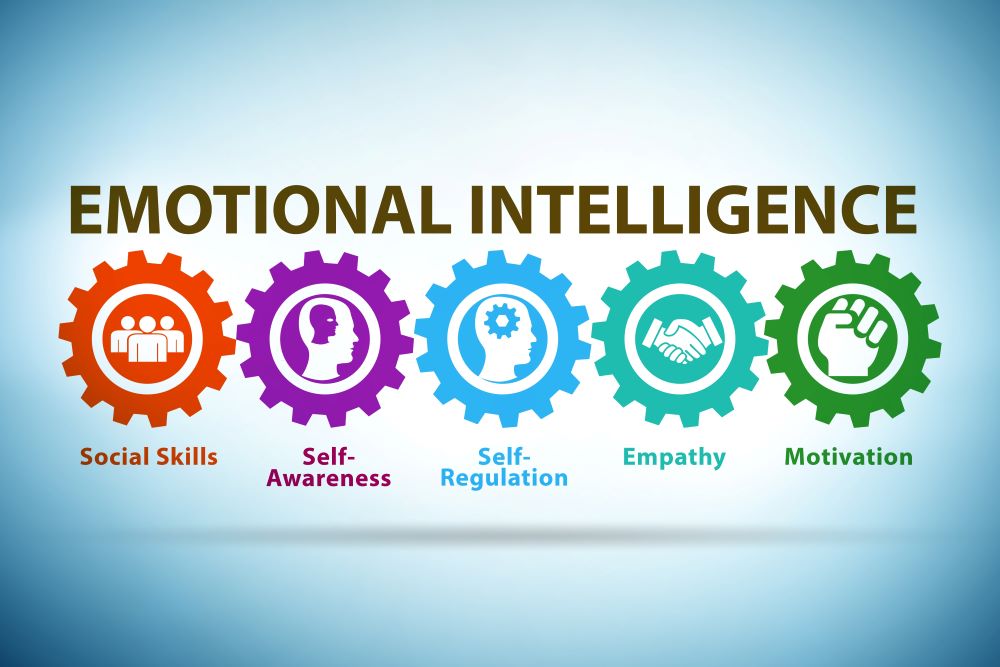
Emotional Intelligence, or emotional quotient (EQ), is an individual's ability to identify, evaluate, control, and express emotions.
Emotional Intelligence is the ability to reason validly and use emotions to enhance thought.
People with high EQ usually make great leaders and team players because they understand, empathize, and connect with the people around them.
They can manage emotions, use them to facilitate thinking, understand emotional meanings, and perceive others' feelings accurately.
EQ is a good indicator of success in the workplace and is used to identify leaders, good team players, and people who best work by themselves.
EQ is partially determined by how a person relates to others and maintains emotional control.
Self-Awareness
The ability to recognize your emotions and their impact.
- Understand negative thought processes/emotional triggers
- Recognize the relationship between thoughts, feelings, and actions
- Learn to interrupt negative thinking
- The power of Proactivity
Self-Regulation
The ability to control your emotions and behavior and adapt to changing circumstances.
- Identify limiting beliefs
- Use goal setting and follow-up to demonstrate the power to change destiny
- Begin with the end in mind/consider possibilities
- Change leader
- Self-regulation
Empathy
The ability to sense, understand, and react to the emotions of others and to feel comfortable socially.
- Understanding others/empathy
- Paying attention to body language cues
- Effective communication skills
- Recognizing communication blockers
- Practicing active listening
Social Skills
The ability to inspire, influence, connect to others, and manage conflict.
- Learn to be a leader
- Learn to be a follower
- Value contributions of all participants
- Follow through on commitments
- Understand conflict
- Seek consensus
- The art of listening effectively
Motivation
Motivation is the desire to act in service of a goal, and it's crucial in setting and attaining your objectives.
Intrinsic motivation refers to behavior that is driven by internal rewards. In other words, the cause to engage in conduct arises from within the individual because it naturally satisfies you.
Intrinsic motivation occurs when we act without any obvious external rewards. For example, we enjoy or see activity as an opportunity to explore, learn, and actualize our potential.
When you pursue an action for the pure enjoyment of it, you are doing so because you are intrinsically motivated. Your motivations for engaging in the behavior arise entirely from within.
Extrinsic motivation arises from outside the individual and refers to behavior driven by external rewards such as money, fame, grades, and praise.
It occurs when we are motivated to perform a behavior or engage in an activity to earn a reward or avoid punishment. In this case, you engage in conduct not because you enjoy or find it satisfying but to get something in return or avoid something unpleasant.